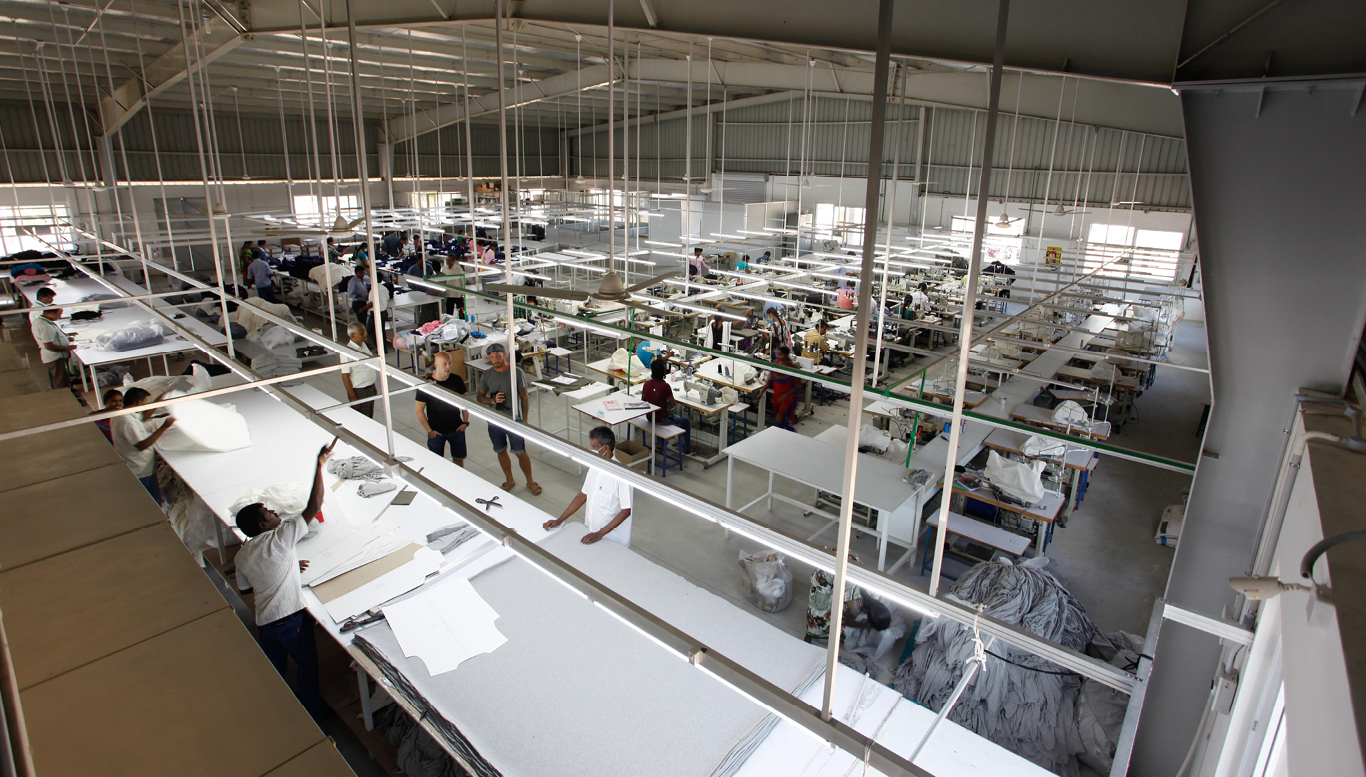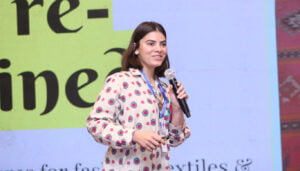Pure Waste turns textile waste into business in India

Pure Waste Textiles is creating a production model in India to turn textile waste into new products. The company has received Finnpartnership’s business partnership support for preparing the new business model.
The business idea for recycling the surplus materials from textile industries came about when a group of Finnish clothing professionals launched the Costo brand in 2006. According to Anders Bengs, one of the brand’s founders, the team became interested in building contacts with recycling operators in major production countries a few years after Costo began.
The project got off to a start in India, where the Finns were assisted by an old contact, a local clothing factory owner. “Our Indian partner became interested in our idea. We asked him to map the local market, and we brainstormed together to come up with ideas to utilise textile waste commercially,” Bengs explains.
Finnpartnership supported the feasibility study process
In 2013, the team founded Pure Waste Textiles Oy and started investigating potential uses for textile waste from the tricot industry in Tamil Nadu, a southern province in India and one of the world’s major producers of tricot fabrics.
Finnpartnership provided business partnership support to help Pure Waste identify potential partners and develop its business model. The company also took advantage of other Team Finland services, namely the funding offered by Tekes for international growth plans. “Finnpartnership’s assistance has been hugely beneficial. There are countless textile producers, but it is not easy to find suitable partners. You have to identify the right operators in each area of production and somehow bring them all together. You have to create a chain that works efficiently.”
A further complication is the fact that Pure Waste only uses 100% recycled materials. The end products must be high quality yet competitively priced.
New factory an important milestone
Pure Waste has built relationships with local tricot manufacturers whose waste material can be reprocessed. Until now, Pure Waste has outsourced services to local subcontractors, but its aim is to build its own production line. “That would allow us to have control over the entire production chain from raw material recycling to the manufacture of new garments,” Bengs envisions.
One important milestone is the production plant built by Pure Waste’s Indian partner outside the city of Coimbatore, which opened in early 2016. “The new plant means that most of the production is now under one roof.” At the plant, textile waste can be processed into fibres and spun into thread. Recycled materials can be turned into finished garments at the nearby sewing shop owned by an Indian partner.
One step at a time
According to Bengs, the team has a new joint venture under way for its Indian business, which should be up and running by the end of 2016. “We are proceeding patiently, one step at a time. First we have to see how well we can get the first plant to work. If the business model works, it will be easy to replicate in other countries.”
At the same time, Pure Waste is looking for markets for its Indian-made products. The production model enables the company to serve different types of clients. Although some textile manufacturers are only interested in buying recycled fibre material, Pure Waste is also well placed to start supplying thread, fabric and even finished garments to international brands.
Bengs believes that textile waste recycling has plenty of potential. The world’s population is growing, and not enough cotton and other raw materials can be produced to meet the demand. “We have no choice but to increase the use of recycled materials. Currently, only about fifteen per cent of the world’s textile waste is reused. Recycling is a massive market.”
Responsibility above all else
According to Bengs, having its own production plant will give the company proper oversight of environmental and social responsibility in its Indian business. Once the plant in Coimbatore is fully operational, it will employ approximately 200 local people. The plant is located in a poor rural area, where jobs offered by responsible employers are vitally important.
In terms of the environment, Bengs wants to ensure that the production does not contaminate or deplete the area’s already sparse natural resources. The plant is located in an area of low rainfall, which is why it has a rainwater collection system. The intention is to cover some of the energy consumption needs with solar power and methane produced from toilet waste. According to Bengs, the company also has plans to support local communities by offering funding for sustainable development projects in future. A separate Pure Waste Fund will be set up for this purpose.
Update (8th April 2016): Pure Waste produces T-shirts for Slush event. Video of production process available here.
Update (22nd August 2016): Pure Waste opening a new unit in Tamil Nadu. More information available here.
Share on social media


